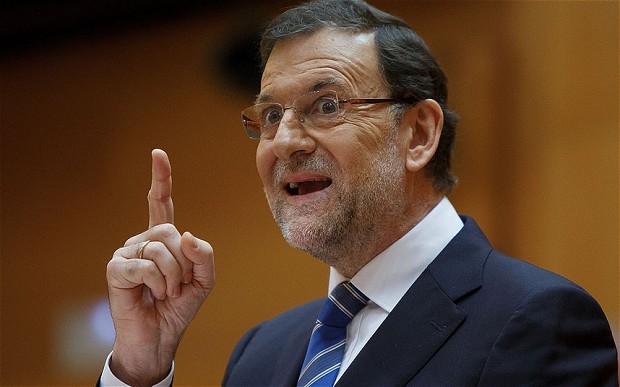Mariano Rajoy emerged as the clear winner of Spain’s general election on Sunday night, after his conservative Popular party won a better than expected 33 per cent of the vote, putting the acting prime minister in a strong position to lead the next government.
Mr Rajoy appeared to have benefited from a last-minute “flight to safety” among Spanish voters, with both his PP and the centre-left Socialist party (PSOE) doing significantly better than predicted by pollsters. Crucially, the Socialists were able to defend their traditional position as the leading force on the Spanish left, leaving the far-left Unidos Podemos party a distant third.
With more than 95 per cent of the vote counted, the PP was on course to win 33 per cent of the vote and 137 seats in Spain’s 350-seat parliament. The Socialists took 23 per cent of the vote and 85 seats, followed by Unidos Podemos with 21 per cent of the vote and 71 deputies. The result means Mr Rajoy will have an additional 14 deputies at his disposal, the biggest gain by far of any Spanish party on Sunday night.
Polls had forecast a seismic shift on the Spanish left in favour of Unidos Podemos, sparking intense speculation on the future of the PSOE and on the possibility of Pablo Iglesias, the Unidos Podemos leader, heading up the next Spanish government. There was disappointment also for the other newcomer in Spanish politics, the centrist Ciudadanos party: it won just 13 per cent of the vote and 32 seats in parliament.
Mr Iglesias told his followers on Sunday night: “These results are not satisfactory for us. We had different expectations.”
Sunday’s ballot came just six months after the last general election, which saw a four-way split in the vote and gave rise to a protracted political stalemate that ultimately forced a repeat election.
Political leaders, along with business chiefs and foreign investors, had voiced hope that a second vote could help break the political deadlock and deliver a stable government to the eurozone’s fourth-largest economy. But the results on Sunday night make clear that Spain’s next parliament will once again be marked by deep fragmentation, with neither the right nor the left holding a clear majority.
Party leaders are likely to face broadly the same coalition options they confronted after the December election. Mr Rajoy has already made clear he intends to assemble a centrist coalition with the Socialists and with Ciudadanos. However, until now both have rejected the notion of another Rajoy-led government.
The second option would be a leftwing accord between the Socialists and Unidos Podemos, but that tie-up would require backing from Ciudadanos or from regional parties from Catalonia that advocate secession from Spain.
Sunday’s election had taken on added significance in the wake of the British vote to leave the EU, which roiled financial markets and raised the most profound doubts yet over the future of the political and economic bloc. Most EU leaders are keen to see Spain finally emerge from months of political stalemate, but there are also fears in Berlin and Brussels that a sharp turn to the left in Madrid could make the management of the EU’s rapidly multiplying crises more difficult still.
